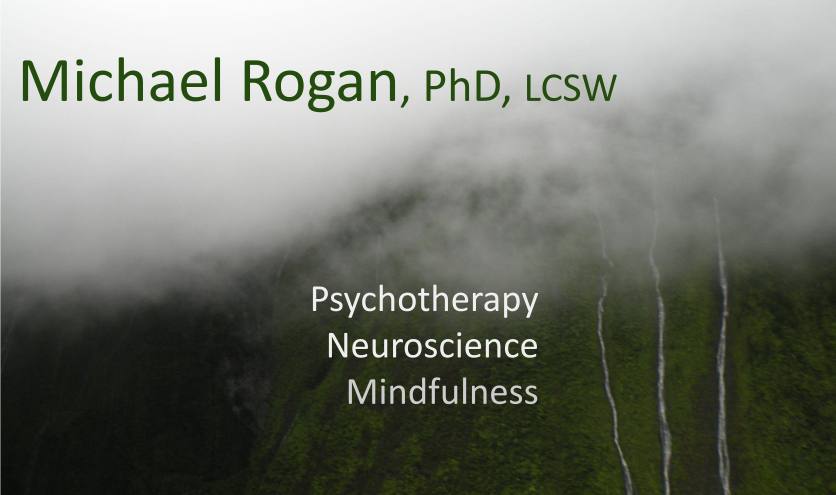Mindfulness
A neurobiological and traditional perspective
Mindfulness is the common name for a traditional approach to cultivating natural health of mind and emotion through clear awareness of mind and body in the present. This allows direct experience of how thoughts and emotions arise and dissolve in the mind, moment by moment, and how we can intervene to break habits of mind. From a neuroscience perspective, this involves training attention to prioritize processing of more early sensory features of experience, before later complex processes related to memories, preferences, expectations, and projections into the future begin to dominate. Mindfulness techniques, based squarely on traditional approaches, have been tested in clinical trials and have begun to enter the mainstream of clinical treatment for a broad range of issues including depression, anxiety, addiction, trauma, emotion dysregulation and relational difficulties.
My mindfulness work is informed by the latest in clinical and neuroscience research, and based on over 35 years of dedicated practice and study of traditional mindfulness techniques.
Mindfulness is a natural part of life.Most people have had spontaneous mindful experiences -moments of direct experience of life that have a simple satisfying quality, uncomplicated by preoccupations with the past and the future, and free from burdensome attitudes about self and other. Though it may seem elusive, this is a natural state, not a complex achievement.
What goes wrong?Mental and emotional habits naturally accumulate during a lifetime, and they get in the way of the simple direct experience of life. These habits can play out, day by day, without much awareness, and we can feel helpless about them because they seem powerful. They are not powerful – they just operate outside of awareness, and so they are not changeable. Mindfulness brings these habits into awareness, where we can make meaningful interventions and change these patterns.
How to fix it-There are many ways, in individual and group settings, to work with mindfulness to optimize mental and physical health. Most clients can benefit from a mindful perspective in treatment. Mindfulness training is a way to cultivate this natural ability to be present, which can lead to greater freedom from reactive patterns and an ability to address life issues with a lighter heart, greater clarity of mind and warm connectedness.
The challenge!Though mindfulness techniques are simple, they are challenging because they run against a lifetime of reactive patterns. For example, habitual patterns of self-criticism can quickly intrude on the simple techniques, leading to a tiring or unpleasant experience and an avoidance of practice. I work with each individual to identify and remedy such obstacles as they arise so that people with a broad range of issues and degrees of distress can benefit from the ease and precision of mindfulness practice.
